
Harvey and Marilyn Diamond developed the Fit for Life Diet in the 1980's and co-authored a book by the same name. The diet is based on the concept of proper food combining, an eating method that prohibits consuming certain types of foods together. There is much controversy surrounding this fad diet. Consult your doctor before making any major changes to your diet.
Breakfast
Video of the Day
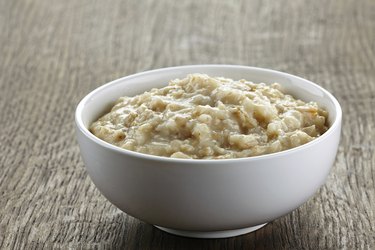
The Fit for Life Diet plan recommends eating carbohydrates early in the day, reserving them mainly for breakfasts and lunches. You should consume carbohydrates either alone or with vegetables, but never with fruit or animal protein foods. Examples of carbohydrate breakfast items are oatmeal, cracked wheat cereals, whole grain breads, muffins and bagels. You should eat these without butter, cream or fruit spreads. Diamond recommends consuming only whole grains and eliminating processed or refined grains from the diet completely.
Video of the Day
Lunch
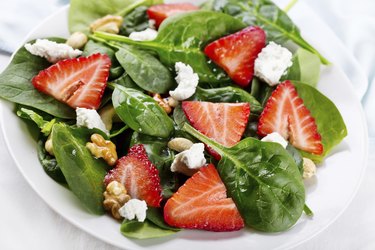
Lunch on the Fit for Life plan offers two options: combining carbohydrates with vegetables, or protein foods with vegetables. Again, the diet discourages eating carbohydrates and protein foods together. Examples of carbohydrate lunches include brown rice and sauteed vegetables, or a whole wheat pita with lettuce, bean sprouts and shredded carrots. Lunches with protein foods include salads with garbanzo beans or sunflower seeds, and lentil or three-bean soup with vegetables. You would use light oil dressings in place of cream dressings or mayonnaise.
Dinner
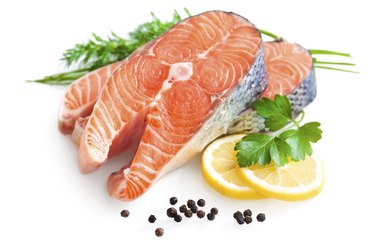
Protein foods are the focus of dinners on the Fit for Life diet. Diamond recommends avoiding animal proteins as much as possible, with the exception of organic eggs and fresh fish, and consuming mostly legumes and dried beans. Some possible dinner items might include meatless chili with assorted raw vegetables, stir-fried tofu and diced Asian vegetables, or broiled salmon and steamed asparagus.
Fruits

You should only consume fruits and fruit juices alone, never combined with other foods or meals. Additionally, you should only consume them early in the day, and never after noon. Diamond purports that because fruits are high in digestive enzymes, they are very cleansing and it is best to eat them first thing in the morning to stimulate the digestive system.
Dairy
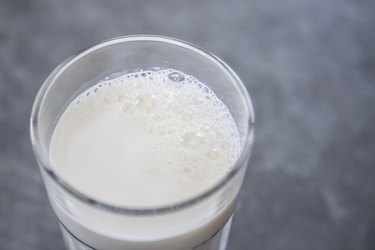
The Fit for Life diet prohibits eating dairy products of any kind. This includes milk, butter, cheese, cottage cheese, yogurt and pudding. Diamond asserts that humans cannot properly digest dairy, and that if consumed, they rot in the digestive tract leading to a host of problems from allergies to irritable bowel syndrome and Crohn's disease. However, in addition to abstaining from dairy, Diamond promotes certain supplements that may alleviate these problems. The USDA recommends adults consume as much as 3 cups of dairy per day. Dairy is a main source of calcium and also provides a complete protein.
Water
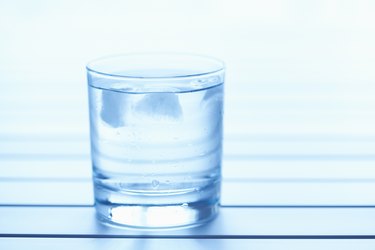
Aside from fresh fruit juice, water is the only other beverage permitted in the Fit for Life plan. And, like fruit juice, you should consume it alone and never at meal times. Diamond claims that water can dilute gastric juices and enzymes in the stomach and disrupt the digestive process. However, there are no scientific studies to support this theory. Water is essential to all life. Although there is no way to determine the exact amount of water you should drink daily, MedlinePlus.com recommends at least six, 6 to 8 ounce glasses per day.